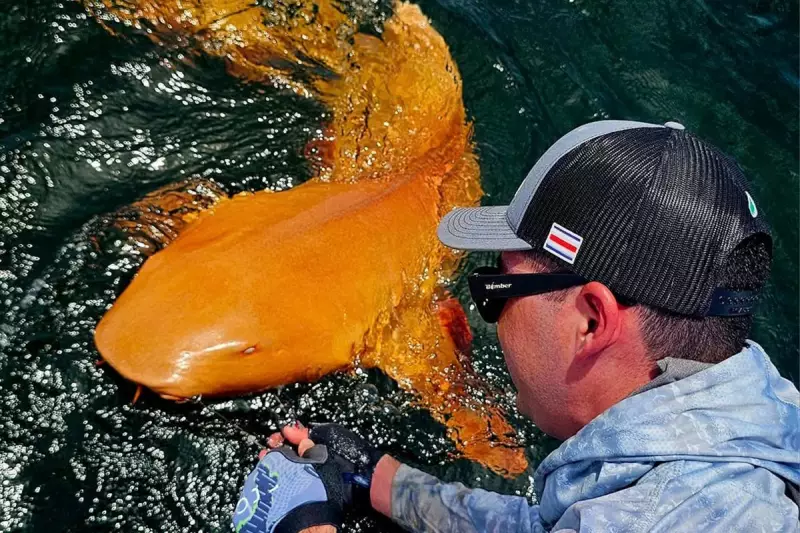
In an extraordinary marine discovery that has electrified the scientific community, researchers have documented one of the ocean's rarest sights: a vibrantly golden-orange nurse shark gliding through the waters of a Costa Rican reef.
The stunning creature, a genetic anomaly known as a xanthic shark, was captured on film by local divers who initially couldn't believe their eyes. Unlike its typically grey-brown relatives, this shark displays a breathtaking bright orange hue, making it look like a living sunset moving through the deep.
The Science Behind the Sunset Colour
This remarkable colouration isn't mere albinism but a condition called xanthism—a genetic mutation that causes an overproduction of yellow pigments, effectively 'painting' the shark's skin this dazzling shade. It's an exceptionally rare phenomenon in the marine world, particularly among larger shark species.
Dr. Carlos Pérez, a marine biologist studying the phenomenon, explains: "We're looking at something truly exceptional. While colour variations occur in nature, a xanthic mutation of this intensity in a nurse shark is virtually unheard of in scientific literature. It's a living laboratory for understanding genetic expression in elasmobranchs."
More Than Just a Pretty Face
Beyond its breathtaking appearance, this golden shark raises fascinating questions about survival and adaptation. Typically, nurse sharks rely on their muted colours for camouflage against rocky seabeds. This individual's vibrant hue would seem to make it more visible to both prey and predators.
Yet somehow, this magnificent creature has not only survived but thrived, reaching an estimated 3 metres in length—a testament to either incredible luck or adaptive behaviours scientists are eager to study.
A Beacon for Conservation
The discovery has ignited discussions about marine biodiversity and conservation. The waters of Costa Rica, particularly around the Cocos Island UNESCO World Heritage site, are renowned for their rich marine life. This finding underscores how much we have yet to discover about our oceans and the importance of protecting these fragile ecosystems.
Researchers are now monitoring the area, hoping for another glimpse of this magnificent animal while emphasising the need for responsible tourism and continued protection of these vital marine habitats.





